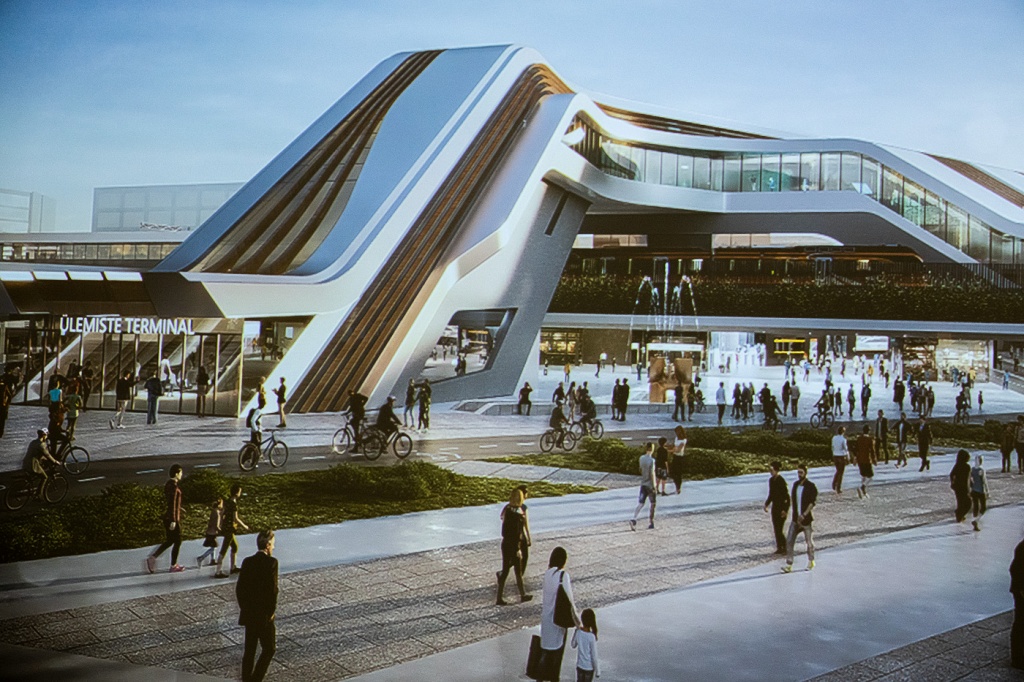Guide to environmentally friendly events
The guide for conducting environmentally friendly events in Tallinn, completed in April 2022 provides an overview of the good practice of organizing nature-friendly events.
The guide contains minimum requirements and recommendations for organizing environmentally friendly events, which are useful for leaders in various fields when making sustainable choices – organizers of cultural and sports events as well as conferences and tourism.
We also give impetus to a more sustainable change in the behaviour of city residents and organizations operating in the city.
We have tested the guide at several events last year. From 2023, the plan is to start applying the guide to all of Tallinn’s own events and also to make it available to all other event organizers who want to reduce the environmental footprint of their events.
The state is planning the reuse solutions at public events from 2024, but Tallinn definitely wants to be faster and implement this principle earlier. Especially since the city is the green capital of Europe 2023 and the circular economy is one of our important topics.
The guide can be found here: Guide to environmentally friendly events
Various experiments
In 2022, we are testing reuse and other environmentally friendly solutions at various public events, and the first results show that they are possible if there is good will.
For example, environmentally friendly recommendations were followed when organizing the largest spring exercise event in Estonia, the May Run. The event received good feedback from both the organizers and the participants. It was noticed that the venue of the event was much cleaner compared to previous events – there was no plastic and single-use packaging, and the sorting of garbage by category also worked well.
The results made us believe that what was written down in April is really feasible. We saw that cooperation partners also dare to think differently and test new products and services. If at first there were more doubts and hesitations, after the testing the success of the parties was perceptible, both for the organizer of the event and for the participants and sponsors.
At a gathering of city employees at the beginning of June 2022, we took steps to reduce the footprint of the event – we used drink cups from the pledge system, and at the end of the evening, all those who wanted could take the remaining food with them.
At the Birgitta festival in August, waste was collected by type and reusable dishes were used, for which the dish return machines were tested. The principles of sustainability were also kept in mind when creating and setting up stage decorations so that they could be used in new performances. The material used for the stage decorations of the opera “Lalli” will be reused in Henrik Ibsen’s play “Meister Solness”, which will soon be staged at the Estonian Drama Theater. The costumes and part of the set design will remain with him for the time being, because negotiations are underway to perform the opera in Finland as well.
At the Tallinn Sea Days in August, as well as at the Tallinn Marathon in September, we took into account the experiences gained at the May Run and the Birgitta Festival. We want to set an example with our actions and convince the event participants that a change in mindset is important.
The cooperation between the green capital of Tallinn and the Estonian Song and Dance Festival Foundation can be seen in the organization of a sustainable Song and Dance Festival for schoolchildren next summer. Environmentally friendly arrangements are certainly followed there.
The city has also thought out instructions for event participants on how to behave as environmentally friendly as possible.
10 recommendations for a participant in an environmentally friendly event:
- Come by public transport or bicycle. We guarantee you bike storage.
- Or come on foot instead – it’s best for your health!
- If you really need to come by car, share a ride. Don’t drive alone in a car!
- Do not take reusable cups or other dishes home! You can use it again at the next event.
- Even better: bring your own water bottle! Clean water is available on-site!
- Sort different types of waste separately: packaging, paper and cardboard, bio-waste, and household waste. It would be especially good if you don’t have any garbage at all.
- Use electronically – the event ticket, program, etc. are also available on your phone.
- Consume wisely! Take as much as you want, but only as much as you need.
- Prefer local!
- Be respectful and friendly to both other people and nature!
